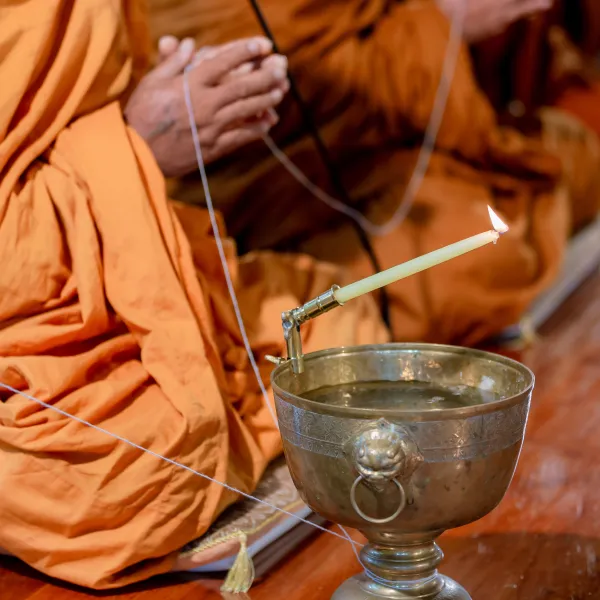Buddhist Funerals Guide
Buddhists believe that reincarnation of the soul takes place after death. Although there are many forms of Buddhism, this belief in reincarnation is one principle they typically share. It forms the underpinnings of most Buddhist funeral traditions.
Are you planning a religious funeral? Get emailed a free guide.
What is a Buddhist Funeral?
The Buddhist community in the United States varies by location and by ethnic and cultural origins. Some families are likely to incorporate Christian beliefs into their Buddhist funeral rites and traditions, while others may choose to adhere close to strictly Buddhist funeral traditions.
Nevertheless, the general protocol for Buddhist funerals is a simple ceremony that takes place at the family home, a funeral home, or a Buddhist temple. There will be an officiant, usually a monk but sometimes a minister or priest if the family chooses to blend traditions with the Christian faith. There are no formal guidelines, but one can expect prayer and meditation, and possibly sermons and eulogies.
There may be a wake, a funeral, and a memorial service or reception after the funeral. Read on for more details.
Buddhist Funeral Traditions
There can be a wake, during which mourners may pay their respects to the deceased person and express condolences to the family. There will likely be a portrait of the deceased person in front of the casket. This serves as the centerpiece of the altar that's set up by the family for the wake. The altar also has candles and other offerings such as flowers and fruit. There will be incense burning, too. If the wake is taking place in a funeral hall, flowers may be displayed modestly. Buddhist tradition dictates that an image of Buddha should be placed near the altar, too.
Buddhists generally favor cremation, but embalming is allowed as well. Families choose according to their personal preference. There are no rules governing when the burial or cremation takes place.
Buddhist funeral rites are conducted on the morning of the burial/cremation ceremony. Verses are chanted, and monks may be invited to conduct the ceremony according to Buddhist funeral traditions. Again, it depends on the family's wishes. The burial or cremation ceremony may simply be conducted by the family.
Buddhism does not prohibit the donation of organs. Also, they see autopsies as a way of helping others, so those are allowed as well. They do prefer that a medical examiner wait three or four days before the autopsy, until the soul has left the body.

Buddhist Funeral Etiquette
Mourners who attend a Buddhist funeral should observe general funerary behavior appropriate for a somber occasion: a quiet, respectful demeanor.
Buddhist Funeral FAQ
How are Buddhists buried?
Buddhist funeral rites vary, but in general, there is a funeral service with an altar to the deceased person. Prayers and meditation may take place, and the... read more
What is a Buddhist funeral like?
Buddhists don't have set-in-stone protocols for their funerals, but you can expect either an open casket funeral, a funeral that takes place just before... read more
Why do Buddhists cremate their dead?
Buddhists believe that cremation is an important ceremony for releasing the soul from the physical form. The spiritual leader of Buddhism, Gautama Buddha,... read more
Do you send flowers to a Buddhist funeral?
Yes, it is appropriate to send flowers to be displayed at the wake/funeral service. Some mourners may also bring the flowers to the funeral with them,... read more
How do Buddhist monks bury their dead?
Monks may bury their dead, but in some areas where burial is not possible, they cremate those who have passed. read more
